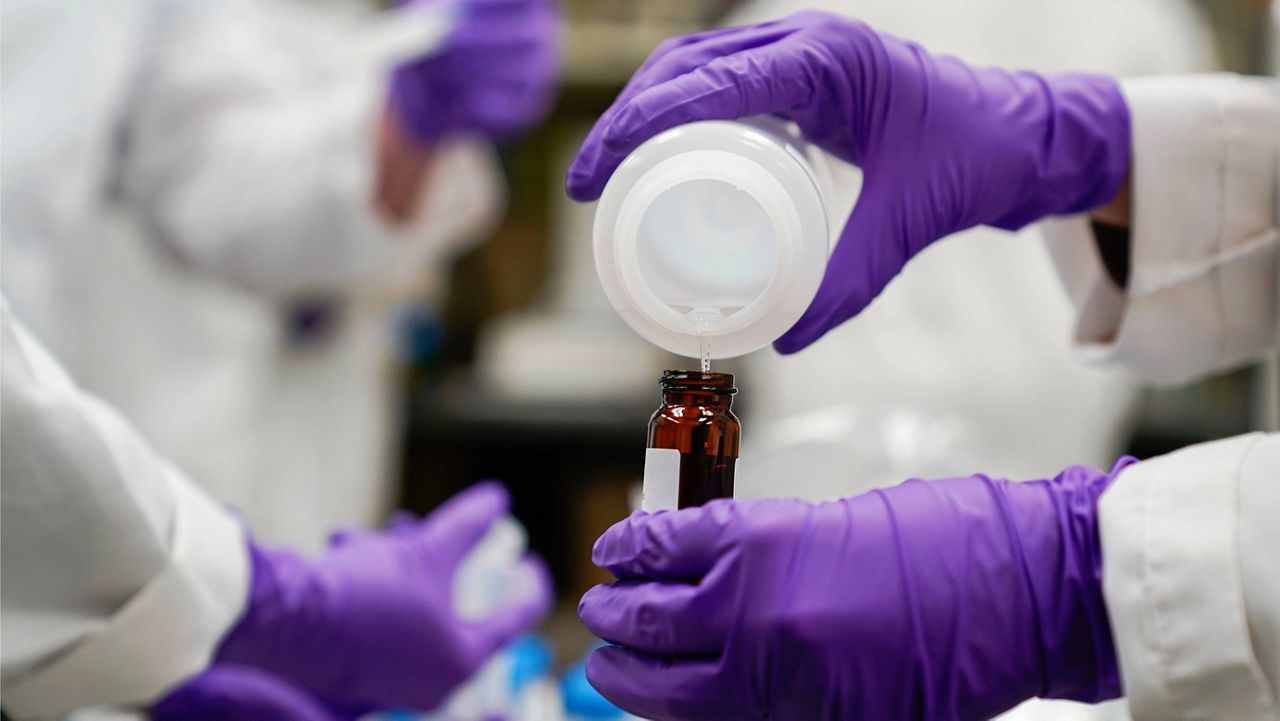On Wednesday, the Biden administration and the Environmental Protection Agency announced a new national standard that will limit the levels of toxic “forever chemicals” linked to cancers and other diseases in Americans’ drinking water.
It’s the first time a limit has been imposed on PFAS, or per- and polyfluoroalkyl substances, which often contaminate the water, soil, food and air near industrial and chemical plants. PFAS chemicals are hazardous because they don’t degrade in the environment, lingering and contributing to health issues such as low birth weight and kidney cancer.
What You Need To Know
- On Wednesday, the Biden administration and the Environmental Protection Agency announced a new national standard that would limit the levels of toxic “forever chemicals” linked to cancers and other diseases in Americans’ drinking water
- It’s the first time a limit has been imposed on PFAS, or per- and polyfluoroalkyl substances, which are often contaminating the water, soil, food and air near industrial and chemical plants
- The EPA says it will reduce exposure for 100 million people and prevent thousands of illnesses, including cancer. Utilities groups, however, say the EPA is underestimating the rule's cost and overestimating its benefits
- The EPA also announced $1 billion in new funding to help water systems across the country -- including private wells -- test and treat their water supply
The new rule, the Biden administration claims, will protect around 100 million people and “prevent thousands of premature deaths and tens of thousands of serious illnesses” and protect infants and children from harmful impacts on their immune systems and development.
“For decades, PFAS, or forever chemicals, have been widely used in industry and consumer products," EPA Administrator Michael Regan said on a press call Tuesday. "They can be found in everything from nonstick cookware to cleaning and personal care products. There's no doubt that these chemicals have been important for certain industries and consumer uses. But there's also no doubt that many of these chemicals can be harmful to our health and our environment.
“These forever chemicals can accumulate in the body over time, and long-term exposure to certain types of PFAS have been linked to serious illnesses, including cancer, liver damage and high cholesterol,” he added.
Between 6% and 10% of the country’s 66,000 public drinking water systems may be affected by this rule, meaning they will have five years to implement water treatment plans -- including the installation of new filtration technologies. EPA officials said they will work closely with local and state-level drinking water agencies to guide them through the testing and, if necessary, treatment processes.
The new rule is enforceable through the long-standing Safe Drinking Water Act, which empowers the EPA and states to take legal action and fine utilities if they are out of compliance. It’s the first new standard for drinking water contaminants since 1996.
The EPA also announced $1 billion in new funding, drawn from the $1.2 trillion Bipartisan Infrastructure Law signed in 2021, to help water systems across the country -- including private wells -- test and treat their water supply.
Regan and White House Council on Environmental Quality Chair Brenda Mallory were set to officially announce the new national standard in Fayetteville, North Carolina, where the drinking water source for 1 million people has been contaminated with forever chemicals from the local Chemours chemical plant where fluoropolymers are produced. Used in electronics, airplanes, cars and other products, a well-known fluoropolymer is known by the brand name Teflon (which is produced by another company).
“We asked for this because we know science-based standards for PFAS and other compounds are desperately needed,” North Carolina Gov. Roy Cooper, a Democrat, said in a statement Wednesday. Before leading the EPA, Regan was North Carolina’s top environmental official.
Utility groups warn the rules will cost tens of billions of dollars and fall hardest on small communities with fewer resources. Legal challenges are sure to follow.
The new regulation is "going to throw public confidence in drinking water into chaos,” said Mike McGill, president of WaterPIO, a water industry communications firm.
The American Water Works Association, an industry group, said it supports the development of PFAS limits in drinking water but argues the EPA's rule has big problems. The agency underestimated its high cost, which can't be justified for communities with low levels of PFAS, and it'll raise customer water bills, the association said. Plus, there aren't enough experts and workers — and supplies of filtration material are limited.
But the Biden administration said the new rule is vital to ensuring every American has access to clean drinking water. Officials framed it as part of President Joe Biden’s larger effort to put the country on the road to cutting the cancer death rate in half by 2047. Biden lost his eldest son, Beau Biden, to cancer in 2015.
“Studies have shown that over 30 percent of cancers diagnosed today could be prevented through methods like decreasing environmental and toxic exposures to carcinogens,” as well as making lifestyle changes, the president wrote in a proclamation last month. “Beating cancer is personal to my family, as it is to millions of families across America and around the world.
“Ending cancer is the kind of big and ambitious goal that America has always embraced,” Biden continued. “Let us recommit to this vital work.”



